Monday Feb 23, 2026
Monday Feb 23, 2026
Monday, 12 October 2015 00:00 - - {{hitsCtrl.values.hits}}
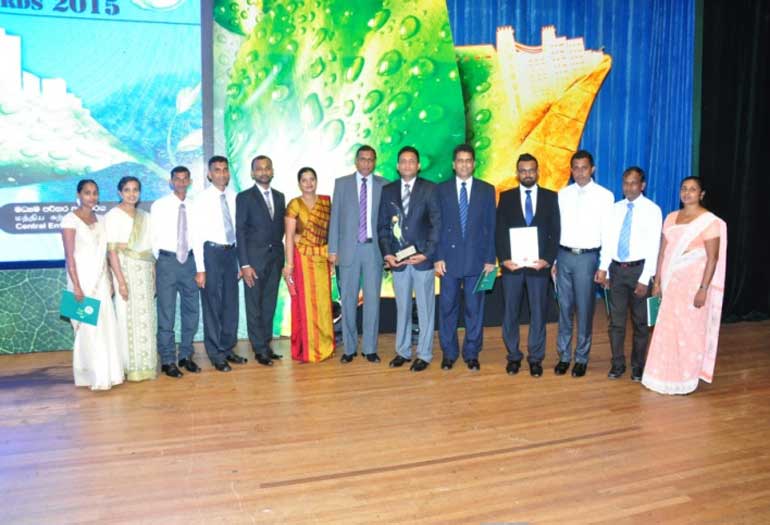 Gold Award winning team – Kiruwanaganga with the Director/DCEO and General Manager – Sustainability
Gold Award winning team – Kiruwanaganga with the Director/DCEO and General Manager – Sustainability
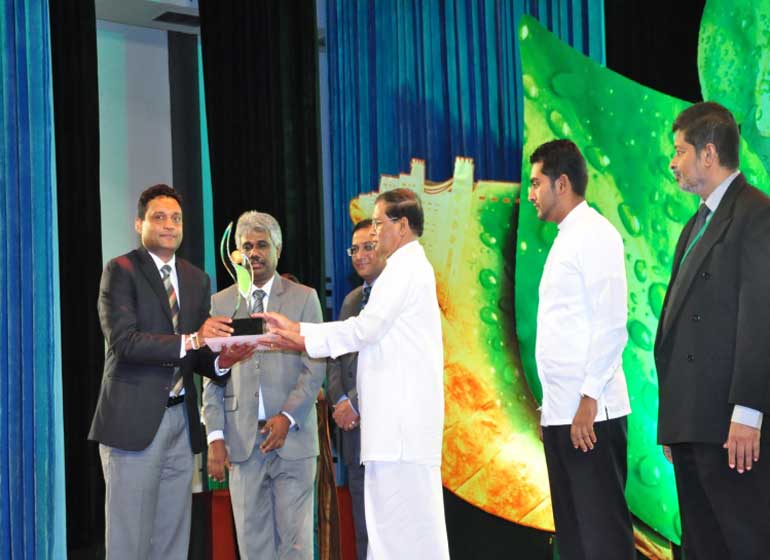
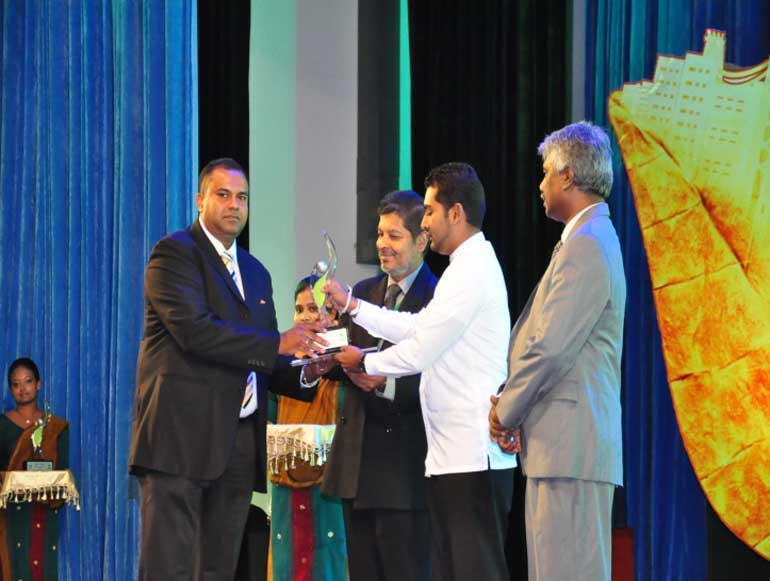
Senior Deputy General Managers of Kiruwanaganga and Mattakelle receiving the Awards from President Maithripala Sirisena and Deputy Minister of Mahaweli Development and Environment Anuradha Jayaratne
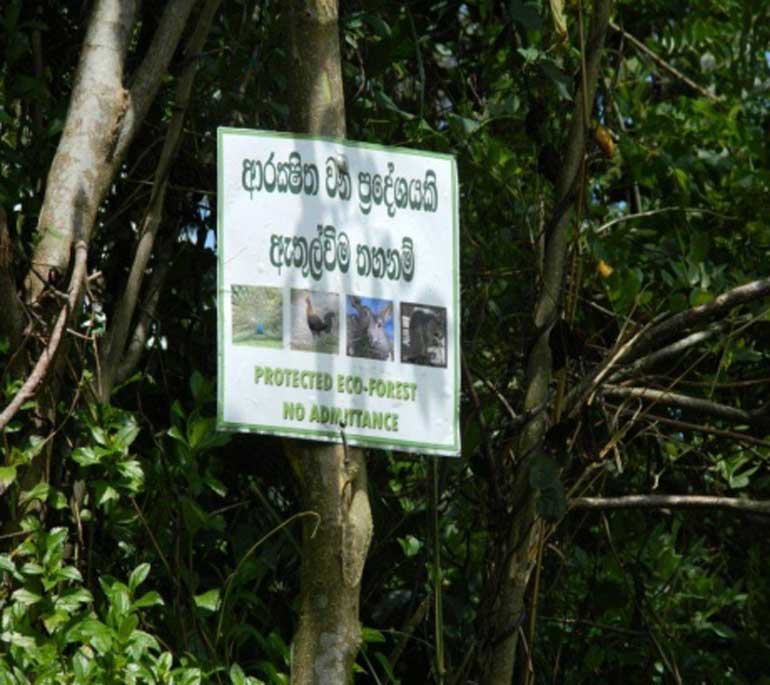
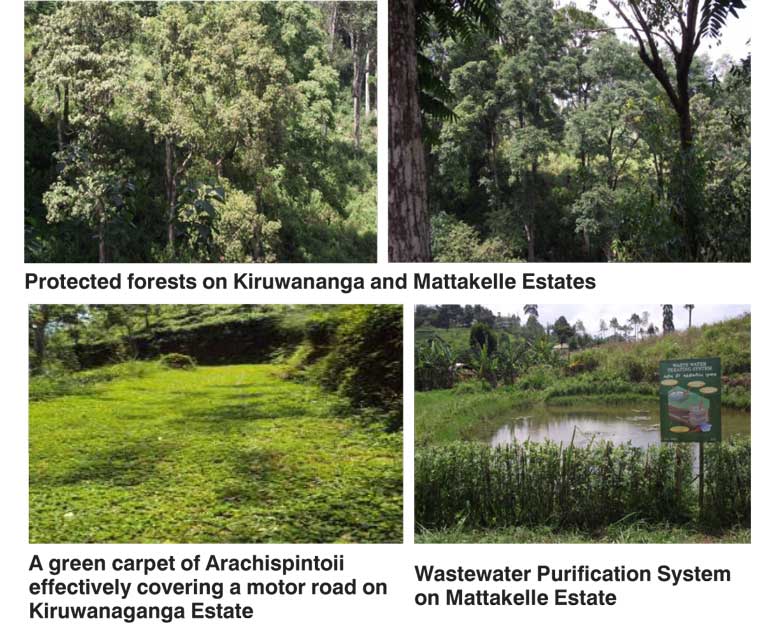
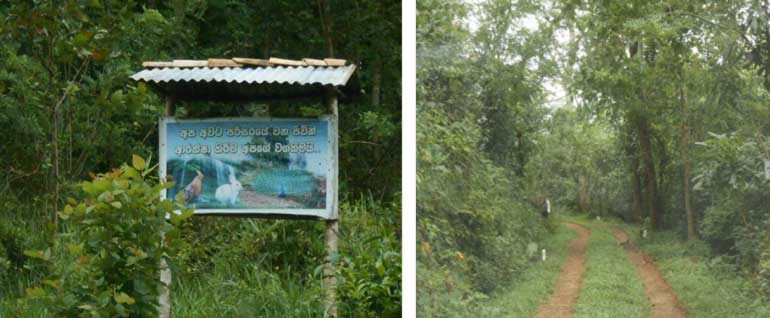
Kiruwanaganga and Mattakelle estates of Talawakelle Tea Estates PLC secured the Gold and the Silver award respectively, under the Food & Beverage category at the National Green Awards clearly demonstrating their commitment towards achieving excellence in environmental sustainability.
The ceremony was held on 5 October at BMICH under the patronage of President Maithripala Sirisena.
The National Green Award scheme recognises and rewards industries and service sector organisations, which have demonstrated good environmental practices and performance.
Both Kiruwanaganga and Mattakelle have received Rainforest Alliance (RA)-Sustainable Agriculture Network (SAN) Certification in 2012 and 2011 respectively. RA-SAN Certification is an internationally recognised integrated Environmental, Social and Ethical compliance program. Consistent performance achieved through the implementation of best environmental and biodiversity conservation management practices, under this program have greatly contributed towards securing these awards.
The mission of RA is to protect ecosystems, biodiversity and the people and wildlife that depend on them by transforming land management practices, business practices and consumer behaviours. The objective is to mitigate environmental and social risks caused by agricultural activities, through a process that provides a measure of farm’s social and environmental performance.
An Internal Management System (IMS) with an implementation mechanism and a manual consisting of policies, objectives, strategies, programs and key sustainability performance indicators have been developed to effectively implement and monitor the activities and outcomes of the RA Programs.
Through the RA program, all terrestrial and aquatic ecosystems including all water sources have been identified, mapped and a management program developed for its conservation. Estates have dedicated around 10% of its land area as conservative forests to protect its rich biodiversity and sustain the ecosystem services. Biodiversity assessments have been carried out by professional bodies and estates are aware of the species available.
Towards achieving the long-term vision of increasing green cover, a tree planting program using native and endemic species have been initiated. Green belts and ground covers have been established minimising soil erosion and significantly reducing the use of agrochemicals.
Among many environmental challenges, the agrochemical usage has been critically addressed with the objective of minimising the usage and adverse impacts. Over the past five years, the estates have completely discontinued the use of insecticides and reduced the agrochemical usage by a significant 19%.
As a precautionary and preventive measure, chemical free buffer zones have been established around all water bodies, frequently travelled roads and areas of human habitations. Rainwater harvesting is done in ponds and wetland areas, which are well protected.
Integrated solid waste management programs implemented, promotes recycling of all non-biodegradable waste and all biodegradable waste is converted to compost, by the ‘JeewaKotu’ concept.
The energy usage and Greenhouse Gas emissions are measured and closely monitored to achieve tangible reductions demonstrating the commitment of the estates to minimising the energy usage and Greenhouse Gas emissions.
All employees and the community are fully trained and empowered through regular educational programs and employee committees. High employee engagement and commitment has been the hallmark of successful results and outcomes achieved on estates.
Through certification and other programs, all estates of TTE PLC have developed and implemented best environmental practices, which are now firmly embedded in the management systems of estates.